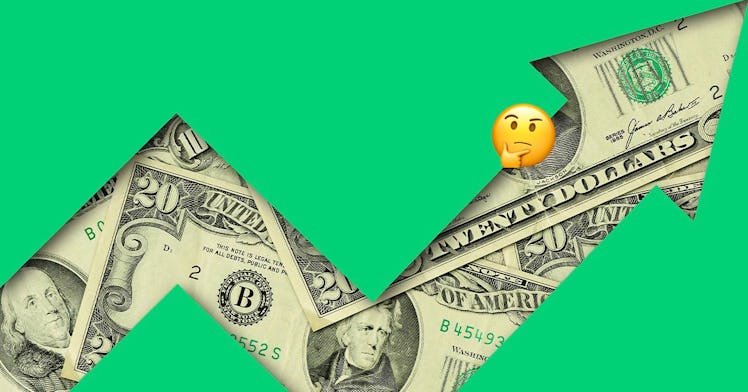Here’s The Surprising Reason Inflation Might Actually Not Be All That Bad For You
As it turns out, inflation isn't a four-letter word.

Inflation is happening, whether we like it or not. Consumer prices for goods from grocery items to home building materials have skyrocketed; consumer prices, in general, rose 4.2 percent in April, the sharpest year-over-year increase since September of 2008, likely due to all of the federal money (including stimulus checks) going into an economy that’s finally reopening. That sounds like bad news to politicians and economists who treat inflation like an economic plague to be avoided at all costs.
But it’s not that simple, and it’s not that simple for the average person. Inflation has its positives, and even Treasury Secretary Janet Yellen is not pressing the panic button despite the sharp jump in prices. Far from it: “We’ve been fighting inflation that’s too low and interest rates that are too low now for a decade,” she told Bloomberg in a Sunday interview.
The Fed will often raise interest rates when inflation happens, seeking to slow down the increase in the supply of money, which can push prices up further—people who have more money are willing to spend more money, which means the prices their charged rise too.
Many of the benefits and drawbacks of inflation are connected to interest rates. Here’s what you need to know.
Who Benefits from Inflation
“If you owe money, inflation is a very good thing,” Roth said of consumers with loans, which is basically every millennial saddled with student debt. “If people owe you money, inflation is a bad thing.”
Generally, it’s those who owe money who should welcome inflation. A homeowner with a fixed-rate mortgage at a low rate, for instance, benefits when the value of their home inflates as their loan payments stay the same.
Rates on savings accounts, money-market funds, and certificates of deposit will also likely tick up, so those with or considering any of those options for their funds are in good shape when inflation occurs.
Also benefiting from inflation? Those whose employers provide cost of living adjustments to their paychecks, as higher prices will likely mean higher salaries for them.
Who’s Hurt by Inflation
Symmetrically, it’s generally those who are owed money who should view inflation with dread. For instance, if you have a long-term, low-interest bond you’ll be missing out on the chance to take advantage of the higher interest rates.
Others who should be wary of inflation are those on a fixed income who have to pay more out while taking in the same amount of money. (The exception to this rule is Social Security, which increases what it pays to beneficiaries when prices rise.)
The Bigger Picture for Families
All of these changes are dependent on inflation continuing, and if price increases dramatically slow next month, then interest rates will likely not change. But conditions suggest that we are entering a longer-term inflationary environment, so it’s worth considering what impacts it might have beyond individuals.
If inflation sets off a panic in Congress, it could make it more difficult for Joe Biden to pass the American Jobs Plan and American Families Plan. Both packages together amount to $4.1 trillion in spending and tax credits, an amount of money that many will claim could mean economic calamity. That means that Biden’s priorities like free public college and upgrading America’s water infrastructure might not make it into the final bill—all things that would make a massive difference for American workers, American parents, and the health of all of us.
This article was originally published on